The Society is delighted to announce our 2024 Prize Lecture recipients, many of whom will be giving their lecture at our joint conference with the Scandinavian Physiological Society, Physiology in Focus 2024, which will be held from 2 – 4 July 2024 at Northumbria University in Newcastle-upon-Tyne.
- Annual Review Prize Lecture: Professor Jens Juul Holst MD DMSc, University of Copenhagen (Denmark)
- Bayliss-Starling Prize Lecture: Professor Colin Nichols PhD, Washington University St. Louis (U.S.)
- GL Brown Prize Lecture Series: Dr Charlotte Stagg MRCP DPhil, University of Oxford (UK)
- Michael de Burgh Prize Lecture: Professor Alexander Gourine PhD, University College London (UK)
- Otto Hutter Teaching Prize Lecture: Professor Frankie MacMillan BSc DPhil, University of Bristol (UK)
- Paton Prize Lecture: Dr Sean Roe PhD, Queen’s University Belfast (UK)
- R Jean Banister Prize Lecture Series: Dr Colleen Deane PhD, University of Southampton (UK)
- R Jean Banister Prize Lecture Series: Dr Andrew Lin PhD, University of Sheffield (UK)
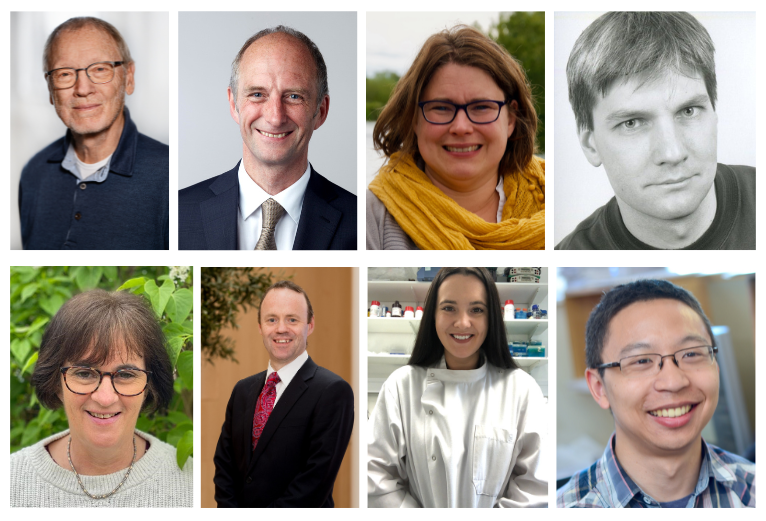
Annual Review Prize Lecture
The Annual Review Prize Lecture is The Society’s premier award. It recognises research that has a wide interest and impact. The recipient of the 2024 Annual Review Prize Lecture is Professor Jens Juul Holst. He will be giving this lecture as part of our joint conference with the Scandinavian Physiological Society, Physiology in Focus 2024.
About the recipient: Professor Jens Juul Holst MD DMSc

Jens Juul Holst is Professor of Medical Physiology at the Department of Biomedical Sciences, University of Copenhagen. He is also Senior Group Leader at the Novo Nordisk Foundation Center for Basic Metabolic Research, University of Copenhagen.
Professor Holst’s scientific work has focused on the regulatory peptides of the pancreas and the gut and their importance in the regulation of the functions of the GI-tract and metabolism, with particular focus on blood glucose and appetite regulation, obesity and diabetes. A particular emphasis has been on the role of the incretin hormones of the gut (GLP-1 and GIP). Professor Holst great scientific achievements include the discovery of GLP-1 (glucagon-like peptide 1) a gut hormone regulating insulin secretion and appetite and food intake and his subsequent both basic and translational research in this field.
With an H-index of 155 (WoS, April 2023), he is among the most cited European scientists in his field. He has authored more than 1900 publications (about 1669 listed in PubMed) that have received more than 101,211 citations in Web of Science as of April 2023. According to PubMed he has 106 new titles for 2022 and 2023.
Bayliss-Starling Prize Lecture
This is an annually awarded lecture made possible by a generous donation from the Bayliss and Starling Society. It is given to early career as well as established physiologists in alternate years. The recipient of the 2024 Bayliss-Starling Prize Lecture is Professor Colin Nichols. He will be giving this lecture as part of our joint conference with the Scandinavian Physiological Society, Physiology in Focus 2024.
About the recipient: Professor Colin Nichols PhD
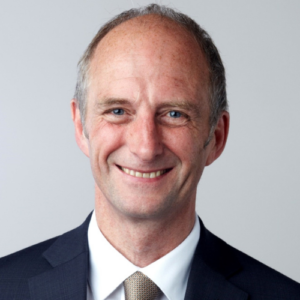
Colin Nichols was born in Leicester, leading a peripatetic childhood around the English Midlands. He went to six schools by the time he was 11, then to high schools in Corby and in Worcester. He was the first in his family to go to university, completing his BSc in Physiology and Biochemistry, and PhD in Physiology, at Leeds University. He was then a post-doctoral fellow at the University of Maryland at Baltimore and Baylor College of Medicine in Houston, Texas, before joining the faculty of the Department of Cell Biology and Physiology at Washington University School of Medicine in Saint Louis in 1991.
His work on potassium channels has elucidated fundamental causes of inward rectification, and of congenital hyperinsulinism, neonatal diabetes, and the cardiovascular Cantu Syndrome. His prediction of the mechanism of human neonatal diabetes, provided the insight that enabled patients to switch from insulin injections to oral drug therapy, and his ongoing work seeks new understanding of K channel function at the molecular, cellular and organ levels, and the development of appropriate therapies for Cantu syndrome and other K channel diseases. Colin is a Fellow of the Royal society, and is currently the Carl Cori Professor, and Director of the Center for the Investigation of Membrane Excitability Diseases, at Washington University School of Medicine.
GL Brown Prize Lecture Series
The GL Brown Prize Lecture Series is aimed at an early career audience to stimulate an interest in physiology. The recipient of the 2024 GL Brown Prize Lecture Series is Dr Charlotte Stagg. Departments can invite Dr Charlotte Stagg to their institutions during 2024 to showcase her research.
About the recipient: Dr Charlotte Stagg MRCP DPhil

Dr Charlotte (Charlie) Stagg is Professor of Human Neurophysiology and a Wellcome Trust Senior Research Fellow in the Nuffield Department of Clinical Neurosciences, University of Oxford, UK. She is also Director of Studies for Preclinical Medicine at St Hilda’s College.
Charlie trained in Physiology and Medicine at Bristol University in the UK. She did her DPhil (PhD) research at the Oxford Centre for Functional MRI of the Brain (FMRIB), using advanced neuroimaging to study how the brain learns new motor skills. She was then awarded a Junior Research Fellowship at St Edmund Hall in Oxford, continuing to be based at FMRIB for her post-doctoral work, with research periods at University College London and the University of Miami, Florida.
Her inter-disciplinary group was founded in 2014 and uses multi-modal neuroimaging and brain stimulation approaches in rodents and humans to understand motor plasticity, both in the context of learning new motor skills and regaining function after a stroke. Her work has two overarching themes: to understand the mechanisms underpinning neuroplasticity across spatial scales, and to use that understanding to develop novel therapeutic approaches for acquired brain injuries. Her group’s work is currently funded by the MRC, BBSRC, EPSRC and the Wellcome Trust.
Michael de Burgh Prize Lecture
The Michael de Burgh Daly Prize Lecture is given biennially in memory of the distinguished physiologist with input from the Cardiac & Vascular Physiology Theme Leads. The recipient of the 2024 Bayliss-Starling Prize Lecture is Professor Alexander Gourine. He will be giving this lecture as part of our joint conference with the Scandinavian Physiological Society, Physiology in Focus 2024.
About the recipient: Professor Alexander Gourine PhD
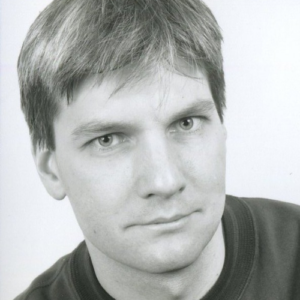
Professor Alexander Gourine obtained his PhD in 1995 from the Russian Academy of Medical Sciences and received postdoctoral training in the US and the UK before joining the University College London (UCL) Department of Physiology in 2006 as a Wellcome Trust Senior Research Fellow. His fellowship was renewed in 2011 and 2016. In 2004, he was awarded the Physiological Society’s Wellcome Trust Prize for his contribution to understanding the mechanisms underlying chemosensory control of breathing. Currently, he is a Professor of Physiology in the Department of Neuroscience, Physiology and Pharmacology, and together with Professor Stefan Trapp, he leads the UCL Centre for Cardiovascular and Metabolic Neuroscience. His research focuses on the central nervous control of circulation and breathing, as well as the physiological mechanisms that regulate cerebral blood flow and maintain brain metabolic homeostasis. Professor Gourine’s research is supported by the Wellcome Trust and the British Heart Foundation.
Otto Hutter Teaching Prize Lecture
This annual prize recognises excellence and originality in physiology teaching at undergraduate level. Special consideration is given to those nominations that provide evidence of innovation in teaching and learning activities. The recipient of the 2024 Otto Hutter Teaching Prize Lecture is Professor Frankie MacMillan. She will be giving her lecture as part of our joint conference with the Scandinavian Physiological Society, Physiology in Focus 2024.
About the recipient: Professor Frankie MacMillan BSc DPhil
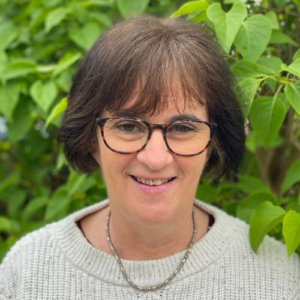
Frankie studied for a BSc in Zoology at Nottingham University and then did her DPhil in Oxford. After several post docs in Oxford, Montreal and Bristol, Frankie was one of the first people to take up a teaching focussed position in the then Department of Physiology at Bristol University before she moved onto Bristol’s teaching focused career pathway when it was launched in 2007. Frankie is now Professor of Biomedical Science Education in the School of Physiology Pharmacology and Neuroscience at the University of Bristol. The overarching aim of Frankie’s work is enhancing the student experience and she has focused on two main areas; supporting students in the transition to university and creating innovative ways to improve students’ learning and confidence using games and non-traditional activities.
She has developed a series of ‘Programme Enhancement Activities’ that include sessions to support students in their transition to university and engaging students with the learning community. Other activities that Frankie has developed incorporate gamification to support students’ learning including numeracy skills development, a histology card game and, interactive workshops to develop scientific writing skills. She has also designed innovative final year research projects including a cross faculty project on classical and physiological perspectives of sex and gender. Frankie is keen to stress that developing successful teaching for undergraduates comes through collaboration and her work is no exception to this as the creation of many of her teaching activities would not have been possible without the input of others.
Paton Prize Lecture
The Paton Prize Lecture aims to promote interest in the history of scientific experiments and ideas. It is given on an historical aspect of physiology. The 2024 Paton Prize Lecture recipient is Dr Sean Roe, who will give his lecture at our joint conference with the Scandinavian Physiological Society, Physiology in Focus 2024.
About the recipient: Dr Sean Roe PhD
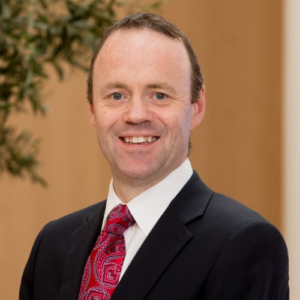
Sean Roe started his undergraduate and postgraduate Physiology career in University College Dublin under the expert supervision of two Physiological Society stalwarts, Professors McLoughlin and Nolan. A particular treat at the time were the regular “History of Physiology and Medicine” showcases mounted by the late Professor Caoimhghin Breathnach in the corridors of the old Earlsfort Terrace medicine campus in Dublin’s centre. These inspired a lifelong fascination with the intersection between physiology, medicine, art and social history which is the subject of this year’s Paton lecture.
He is now a Senior Lecturer in the Centre for Biomedical Sciences Education in Queens University Belfast having spent a joyful 25 years there spreading his love of physiology to students of science, medicine, dentistry, pharmacy and nursing. His education philosophy centres on helping students find meaning and joy in that which they do; “if you’re laughing, you’re learning” being a guiding principle. He leads on a number of physiology programmes in the School including Scientific Methods for Biomedical Science students, Physiological Science for Human Biology students, and Neuroscience for medical students. He also leads on Equality Diversity and Inclusion (EDI) within the centre.
Sean’s current research interests centre on making physiology learning engaging, exciting and relevant by using technology and breaking down the barriers between subjects. He was part of the team (together with his colleagues Drs. Chris Johnson Etain Tansey) that won the 2015 David Jordan award for repurposing ultrasound machines to teach physiology. He is currently engaged in an ongoing collaboration with Drama in QUB. This has seen drama students invited to basic medical physiology tutorials to better contextualise the material being taught and focus students from an early stage on the importance of that which they’re learning. This work formed part of the 2022 Physiological Society Report to Parliament on the value of physiology education and training to UK Society. He has performed as a facilitator in concerts and arts festivals involving classical and traditional musicians reflecting his enthusiasm for curiosity and creativity in all of its forms and disciplines.
R Jean Banister Prize Lecture Series
The R Jean Banister Prize Lecture Series is awarded to early career physiologists and is delivered in three or four locations across the UK and Ireland. The 2024 R Jean Banister Prize Lecture Series joint recipients are Dr Colleen Deane and Dr Andrew Lin. Departments can invite Colleen or Andrew to their institutions to showcase their research.
About the recipient: Dr Colleen Deane PhD
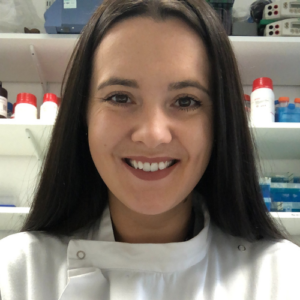
Colleen is a Lecturer in Muscle Cell Biology at the University of Southampton, particularly interested in how skeletal muscle adapts to ageing, spaceflight and disuse and how exercise and nutrition can help maintain/optimise muscle mass in these scenarios. Colleen’s Ph.D. focused on understanding the metabolic and molecular mechanisms underpinning muscle regeneration following exercise in youth and older age. Thereafter, Colleen completed multiple post-doc positions. The first was investigating the impact of NAD+ precursor supplementation on muscle and mitochondrial health in older adults. The second investigated the mechanisms of and countermeasures for spaceflight-induced muscle decline, which involved sending worms to space as part of the first UK-led experiment to the International Space Station (ISS) – the Molecular Muscle Experiment (MME). Realising the gap of traditional physiologists being able to handle ‘big data’, Colleen was awarded a 3-year MRC Skills Development Fellowship to develop her own bioinformatic skills and investigate the transcriptional basis of skeletal muscle atrophy and hypertrophy. Colleen was also part of the science team that conducted a second experiment on the ISS, the MME2.
About the recipient: Dr Andrew Lin PhD
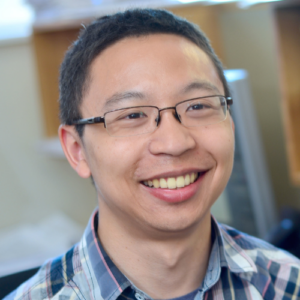
Andrew Lin is a Senior Lecturer in the School of Biosciences at the University of Sheffield. He received his bachelor’s degree in biology from Harvard University in 2004. He did his PhD on local translation in axon guidance with Christine Holt at the University of Cambridge, supported by a Gates Cambridge Scholarship and a National Science Foundation Graduate Research Fellowship. He did his postdoctoral work on sensory coding and memory with Gero Miesenböck at the University of Oxford, supported by a Sir Henry Wellcome Postdoctoral Fellowship. In 2015, he started his lab at the University of Sheffield, where his research group has been supported by an ERC Starting Grant and a Wellcome Trust Discovery Award, as well as funding from BBSRC, EPSRC and Google DeepMind. In 2018, he was elected to join the FENS-Kavli Network of Excellence.
Andrew studies how sensory circuits develop and maintain optimal coding strategies for storing stimulus-specific associative memories. He addresses these questions in the olfactory system of the fruit fly Drosophila, using a combination of physiology, anatomy, genetics, behaviour, and computational modelling.
